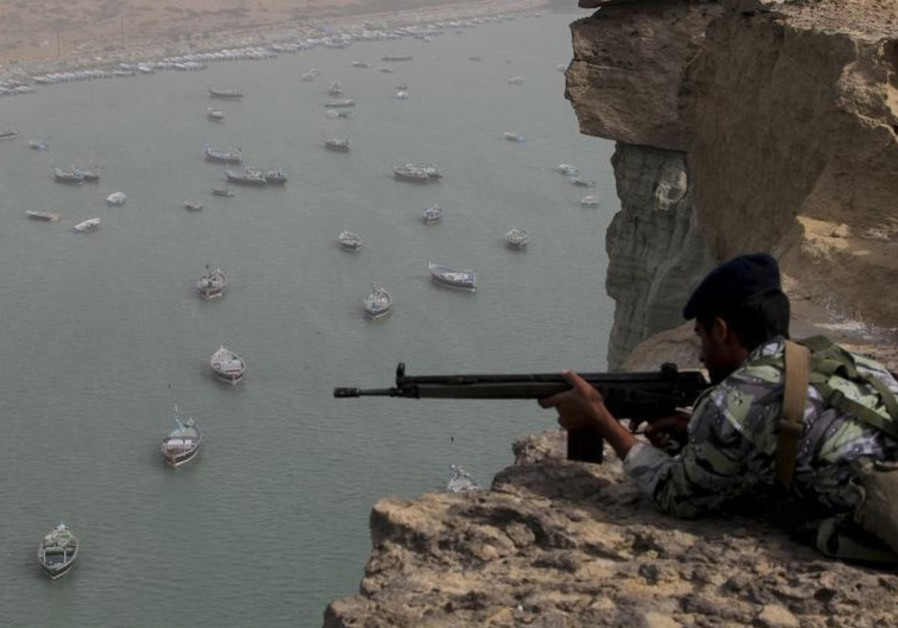Kuwait has announced its concern following Iran’s threat to close the Strait of Hormuz, a narrow waterway that links the Persian Gulf with the Arabian Sea and the Gulf of Oman. It is the main artery for the transport of oil from the Middle East.
Adm. Alireza Tenksiri, commander of the naval forces of Iran’s Islamic Revolutionary Guard Corps, stated last week that Iran would close the waterway to all traffic if Tehran were prevented from using it.
“The Strait of Hormuz is a sea passage in accordance with international law. No one will benefit from it if we do not use it,” Tenksiri said.
He spoke hours after the White House announced the end of waivers from US sanctions on Iranian oil imports.
Khalid Al-Jarallah, deputy foreign minister of Kuwait, expressed worry about the possible closure. During an event marking the 25th anniversary of the partnership between Kuwait and the United Nations Organization for Migration, Jarallah told the press that his country always looked to distance itself from such tension.
Ali Abd al-Hamad, an Egyptian political analyst who heads the Arab Civilization Center for Advertising and Publishing, told The Media Line that the US was trying to impose its hegemony to prove its strength in the region.
“In addition,” Hamad said of the US, “it protects the Zionist entity that Iran is against.”
Hamad added that the American sanctions on Tehran reflected a policy aimed at fighting rising forces by waging economic warfare.
“The United States starts fighting these forces with political tools, and then uses other tools to achieve its goals,” he stated.
He said the US insisted on strengthening its power in the Arab world on behalf of Israeli requirements.
“In the end, the American administration threatens to use force, but if it implements [that threat], Iran would respond, and that would drag the area to a war,” Hamad said.
Recommended videos
Powered by AnyClip
Irans foreign minister proposes prisoner swap for jailed British-Iranian mother
Play Video
NOW PLAYING

Irans foreign minister proposes prisoner swap for jailed British-Iranian mother

Britain, France and Germany Agree To Continue Support For Iran Nuclear Deal

Pompeo visits Gulf, Israel to shore up Iran stance

Irans Foreign Minister Zarif resigns from position, February 26, 2019 (Reuters)

Mohammad Javad Zarifs Resignation Rejected By Rouhani

Major Powers Try To Keep Iran Nuclear Deal

Iran Says Twitter Shut Legitimate Accounts
In March, the US Treasury Department announced sanctions on 31 Iranian scientists and companies affiliated with the Islamic Republic’s Organization for Defense Innovation and Research, which previously spearheaded the nation’s nuclear program. In response, Iranian Foreign Minister Mohammad Javad Zarif accused Washington of “economic terrorism.”
Last week, the US special representative for Iran, Brian Hook, claimed that US sanctions had already denied the Iranian regime more than $10 billion in revenues, adding that he expected the figure to rise dramatically in the coming months. Hook’s comments came after the US announced an end as of May 2 to waivers granting numerous countries – including China, India, Japan, South Korea and Turkey – the ability to purchase Iranian oil without sanctions being imposed.
Bilal al-Shobak, a Palestinian analyst and political science instructor at Hebron University, clarified that Kuwaiti policy was not independent and followed the general policy in the Gulf.
The Gulf states are being used here to add more pressure on Iran,” he told The Media Line. “The matter isn’t related to the Gulf states, but [to] the American attempts to weaken Tehran.”
To that extent, Shobak pointed out that the Trump Administration rejected the Iranian policy of not recognizing Israel and constantly threatening it.
“Iran is involved and plays big roles in more than one key and critical issue in the region,” he said, adding that the US was targeting Tehran for that reason, and not only because of the issue of the Strait of Hormuz.
“The Gulf states have a strategic alliance with the US against Iran,” he said.








